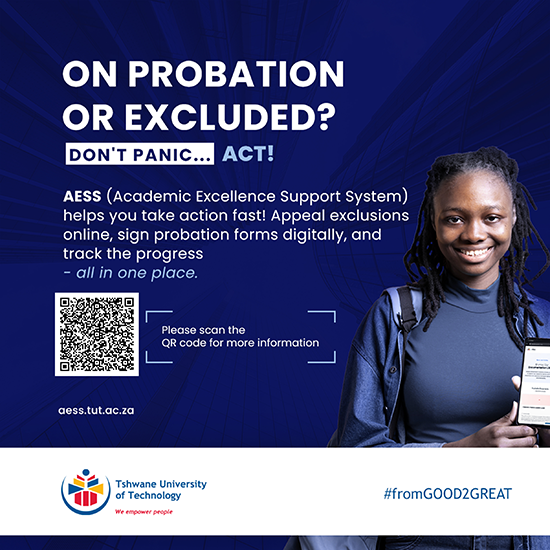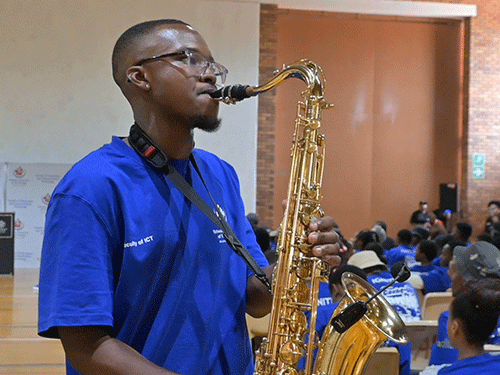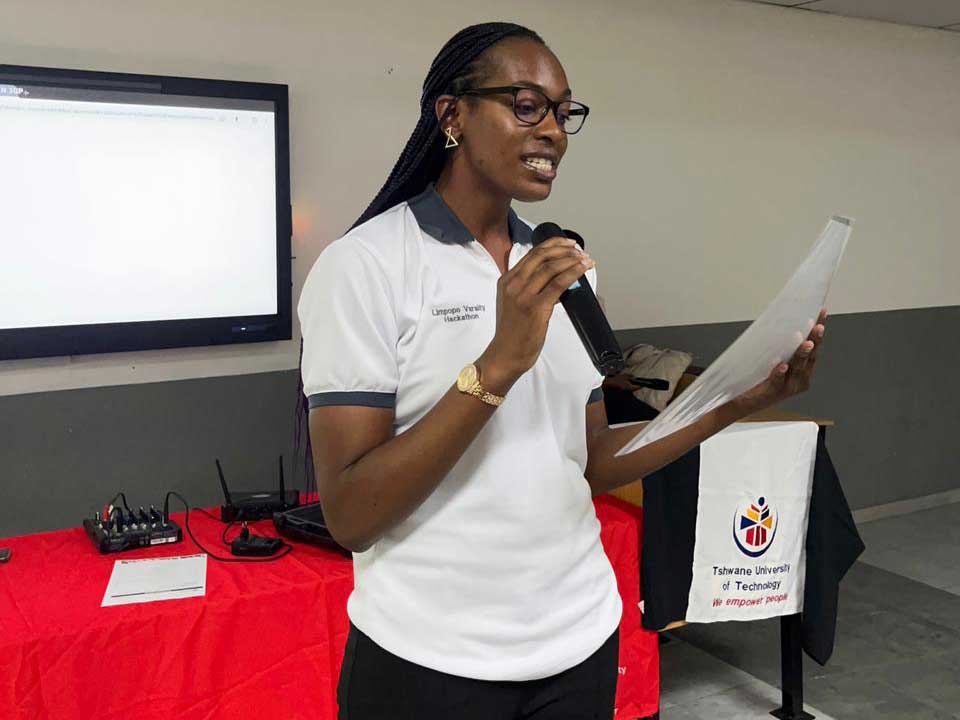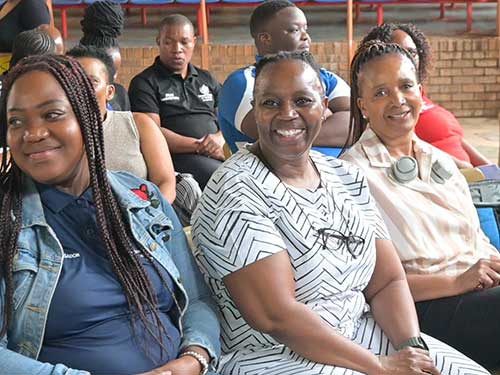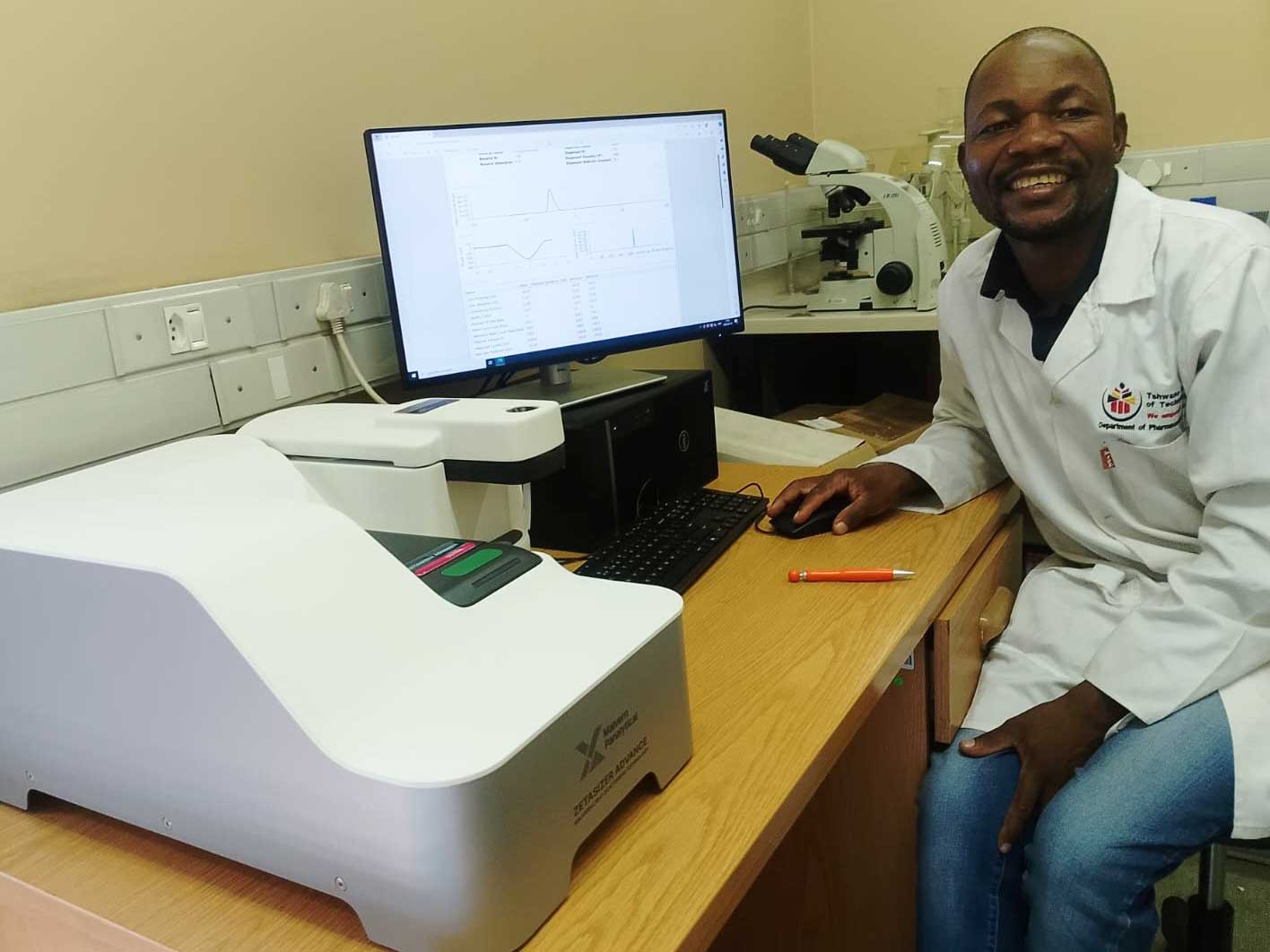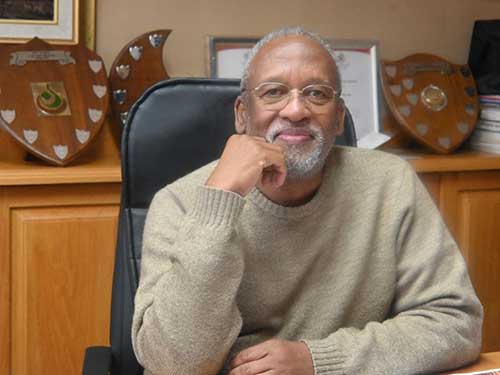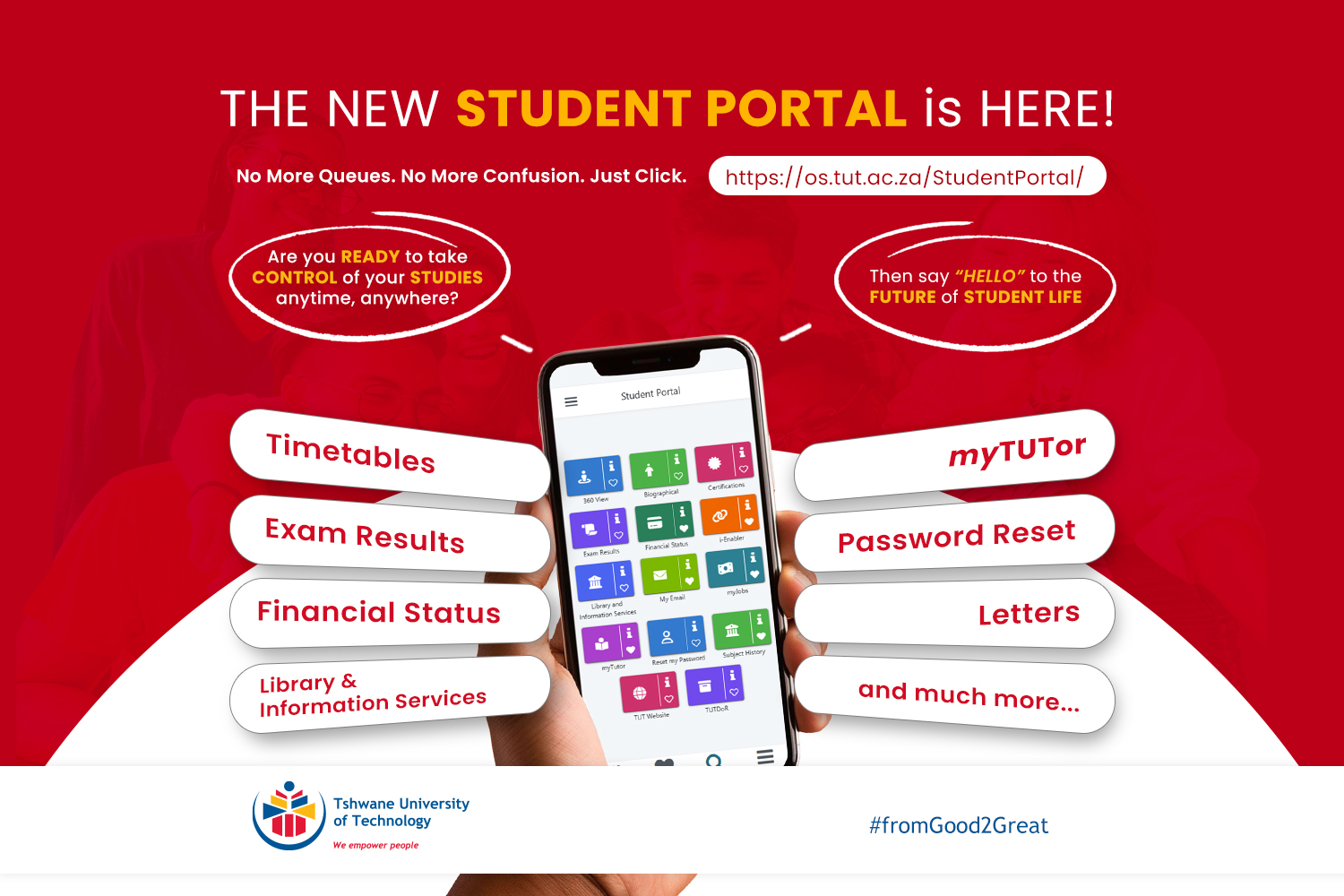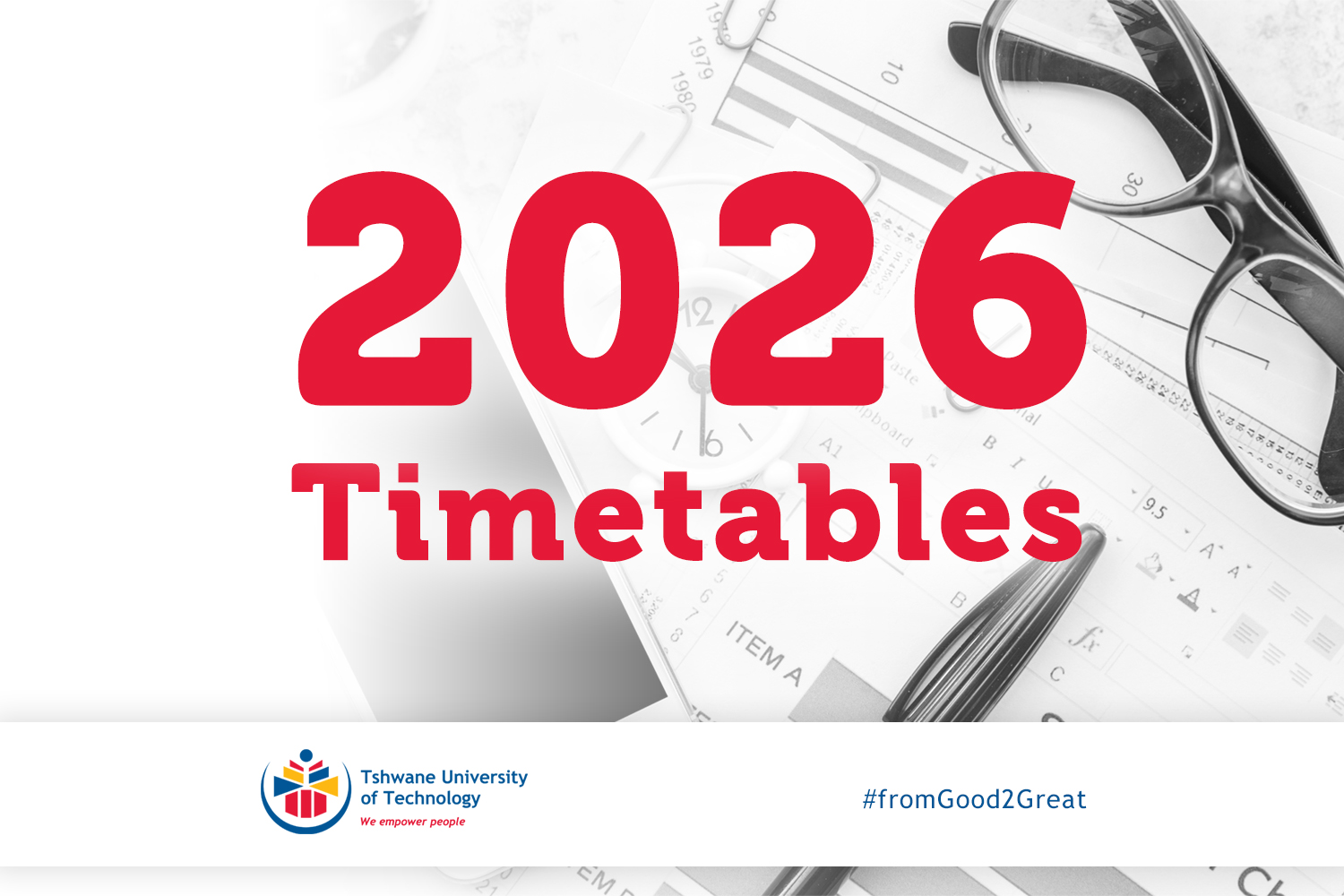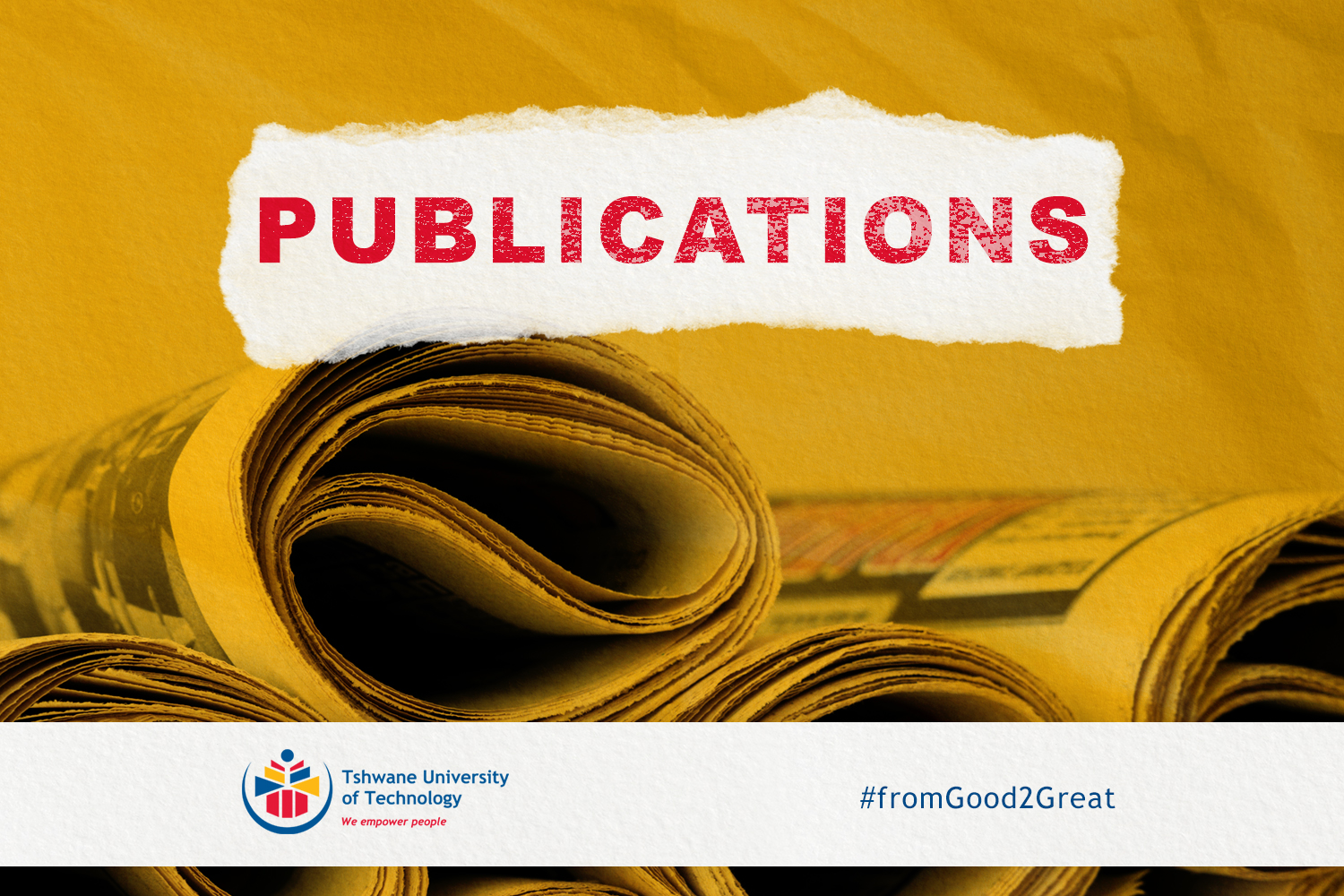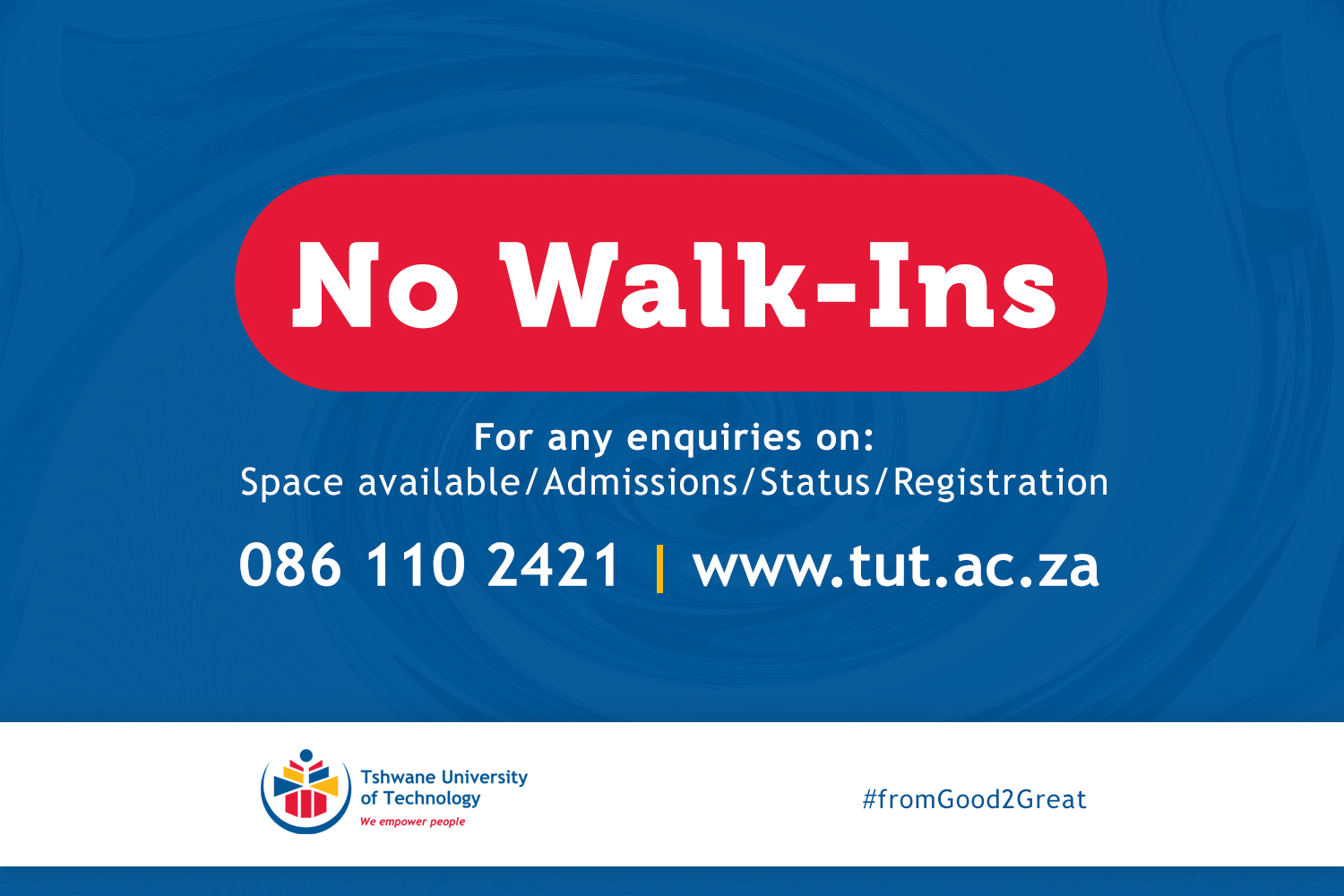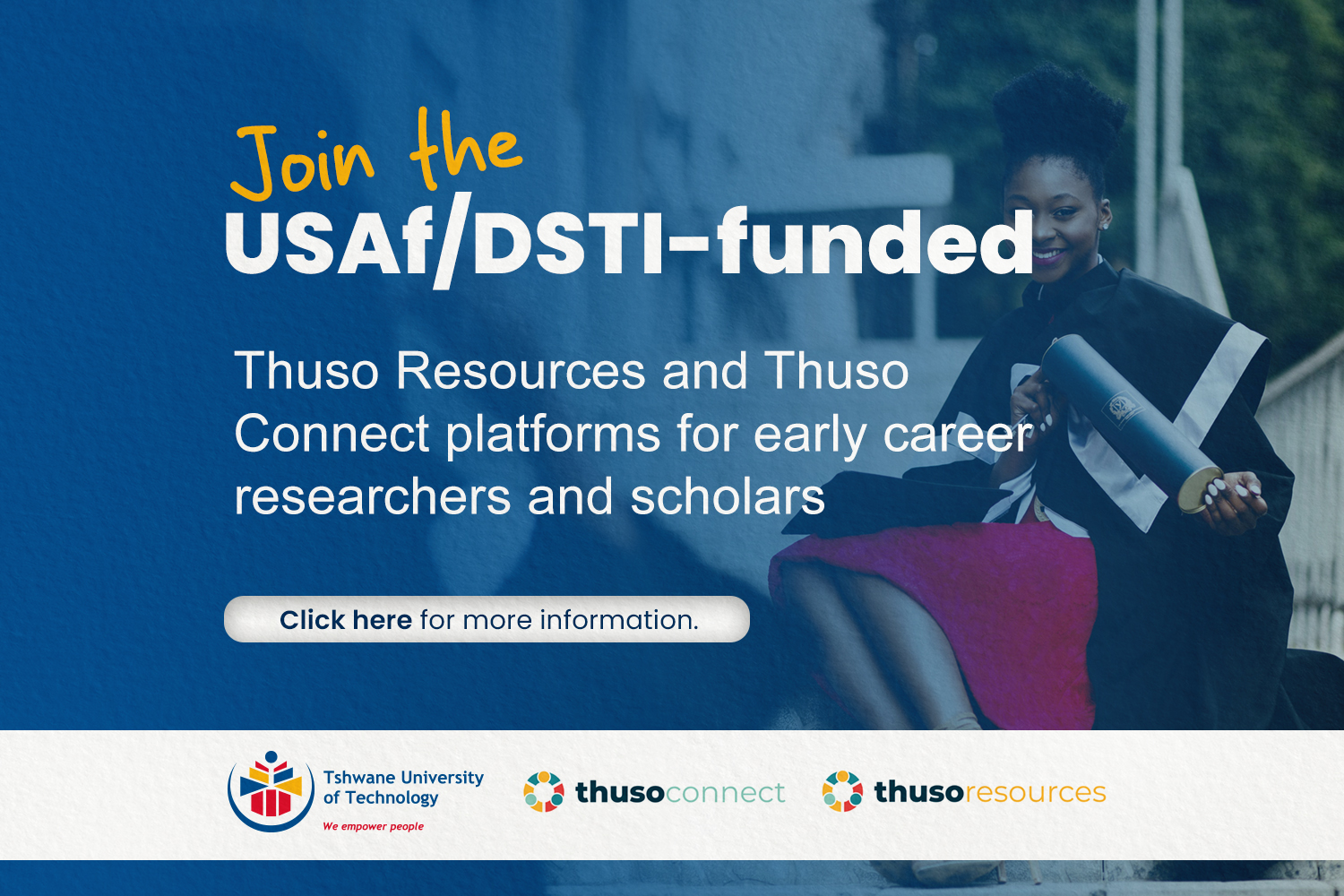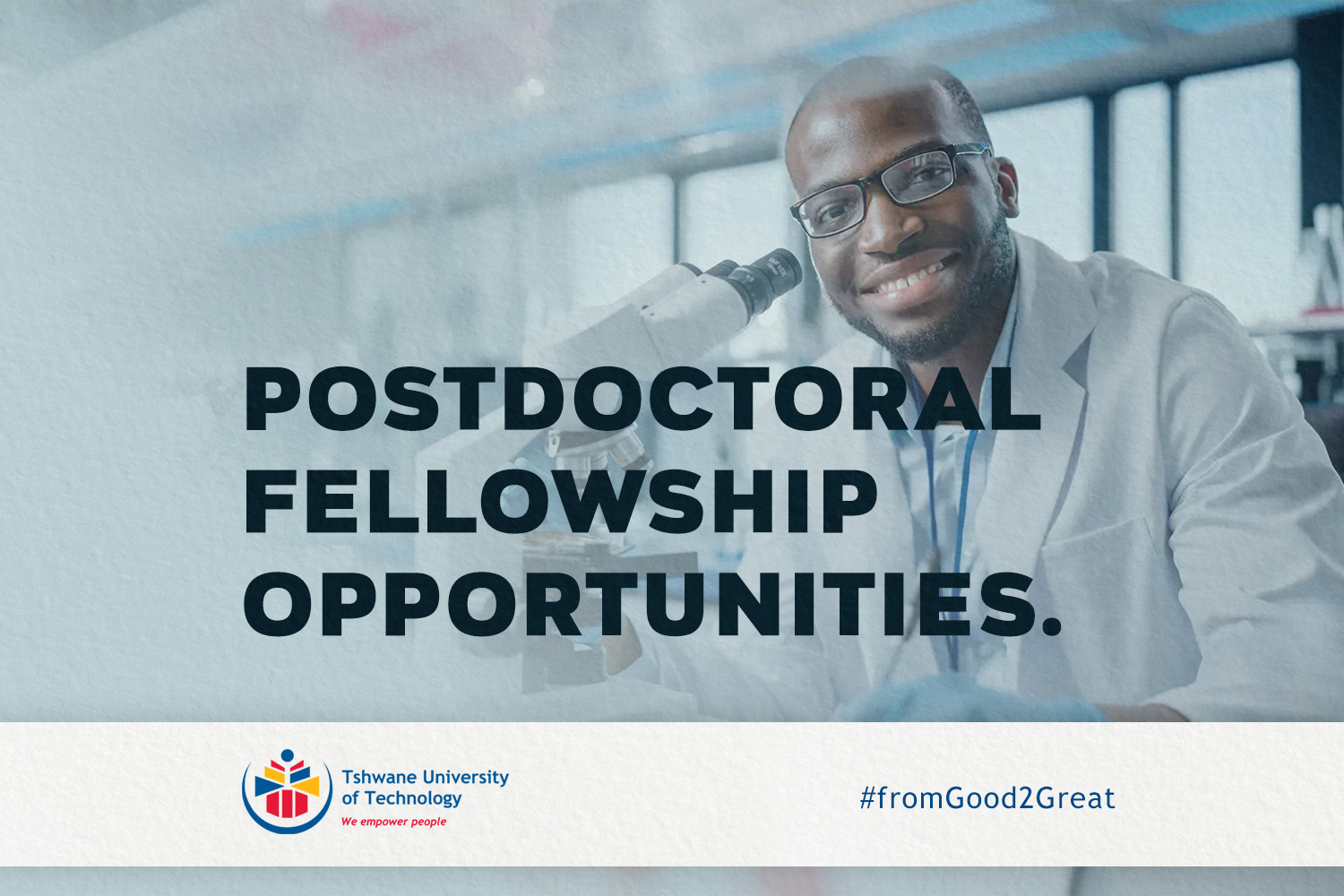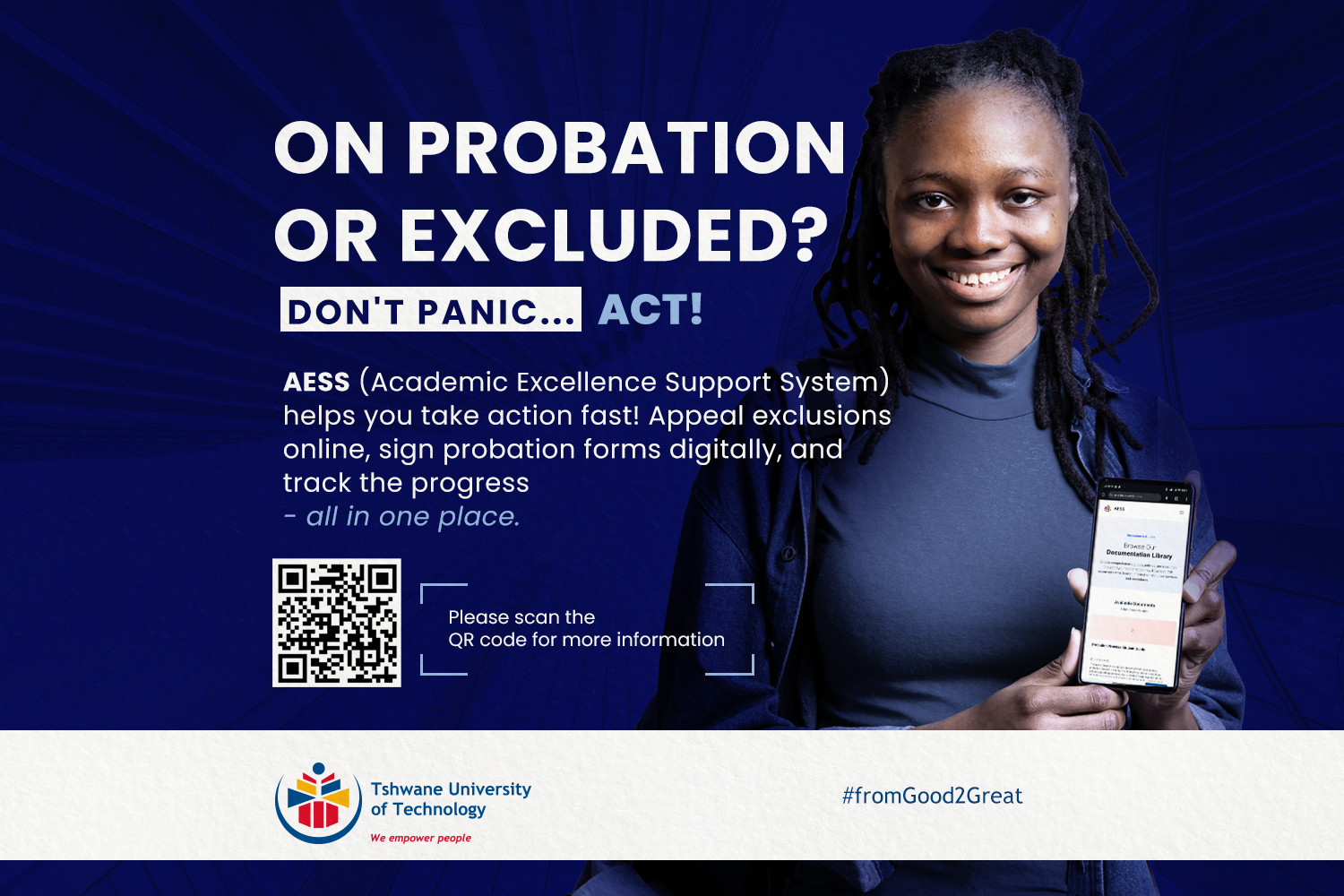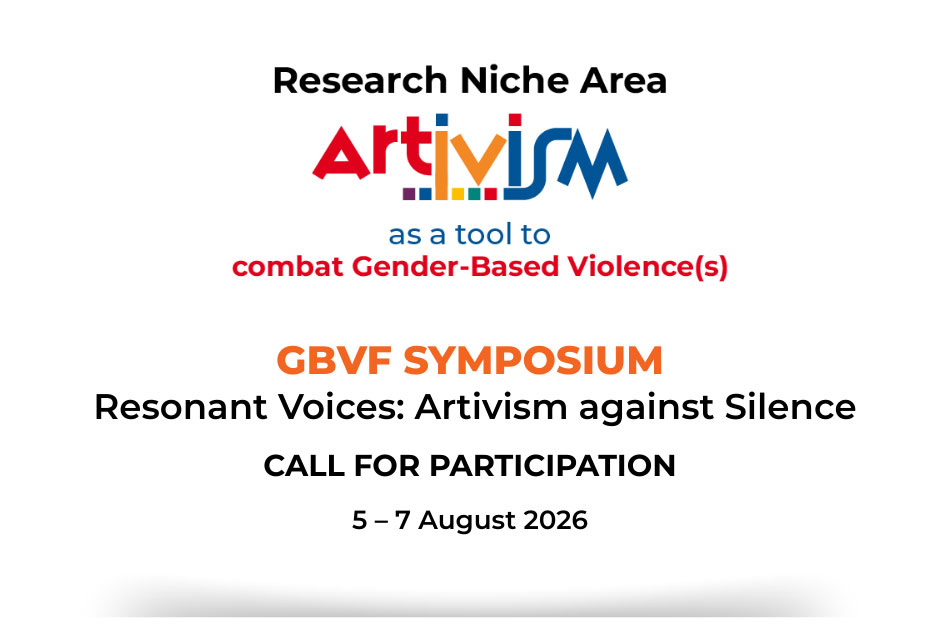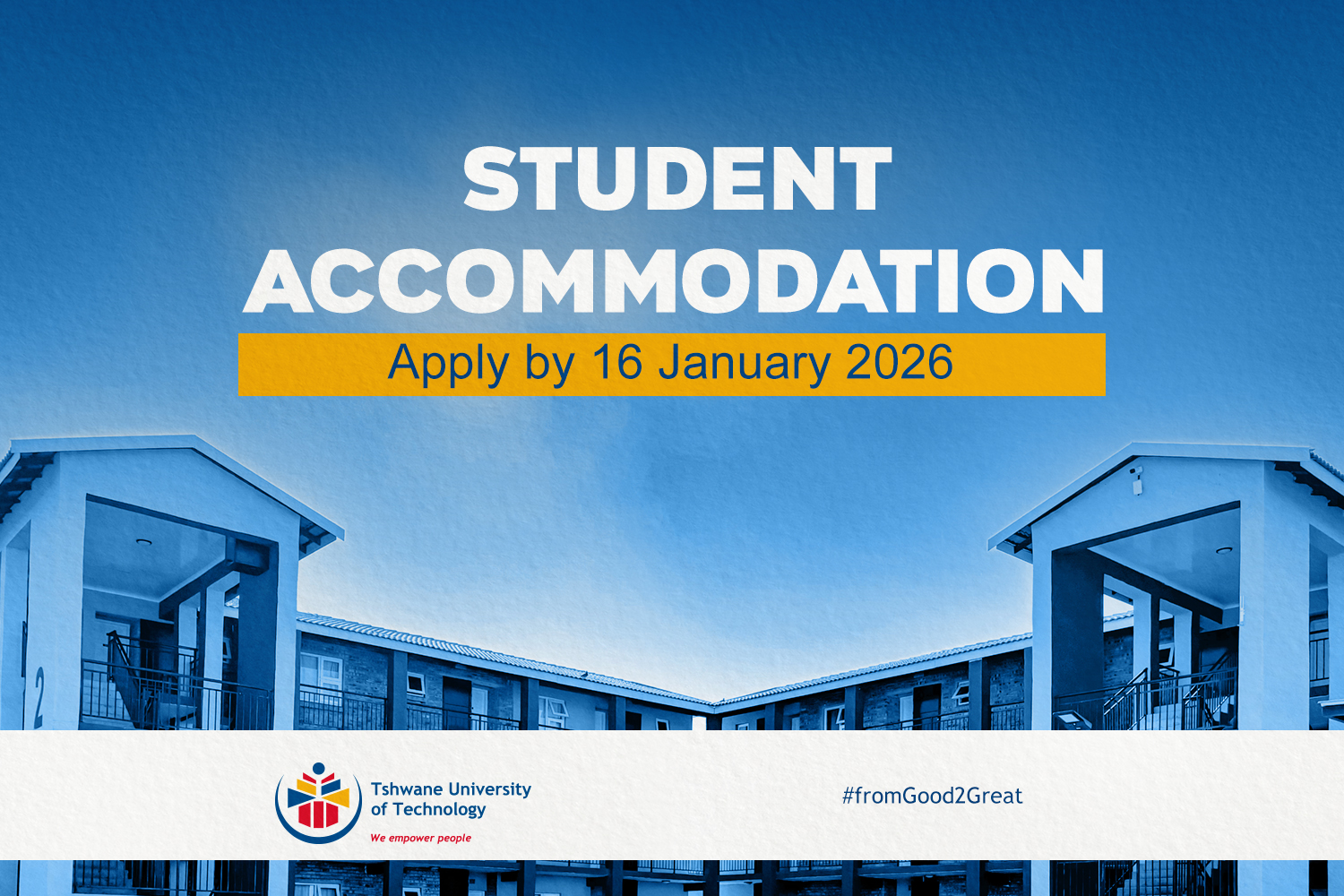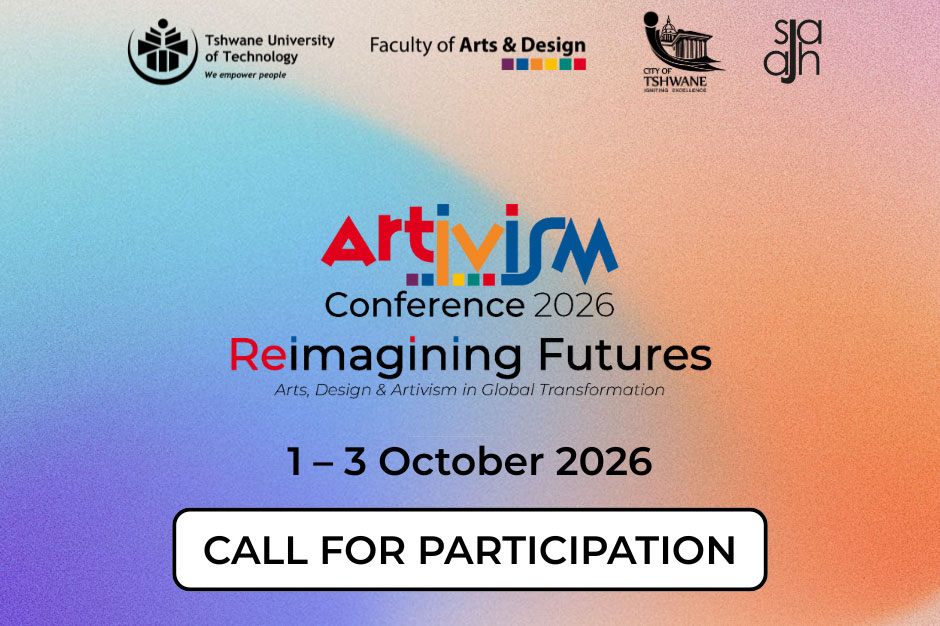
Featured Undergraduate Programmes
Here is the list of featured undergraduate programmes

Featured Postgraduate Programmes
Here is the list of featured postgraduate programmes
Notices
-
Users who utilise TUT login credentials were previously notified of a potential cybersecurity compromise that occurred in December 2023. The Tshwane University of Technology (TUT) took prompt action to contain and mitigate the threat and potential consequences at the time. TUT further notified the Information Regulator, as per the requirements of the Protection of Personal Information Act and conducted an investigation to determine the full scope of the compromise.
The investigation has been concluded and confirmed that the swift response and containment actions taken were effective in halting the threat activity. The University has implemented additional security measures across its systems to mitigate against future incidents, as well as improved monitoring with enhanced alert systems.
Users are urged to remain vigilant of any suspicious activity and to take precautionary measures to protect personal information. This includes remaining cautious of phishing attempts or unsolicited communications that request personal details or financial information.- Reset your password frequently and create a strong, unique password that is not used for any other online accounts.
- Enable multi-factor authentication (MFA) on your account, if this has not yet been done. MFA adds an extra layer of security by requiring a second factor, such as a code from your phone, to log in.
- Beware of scams, particularly those targeting prospective students and report unauthorised activity. Click here more information.
If you have any enquiries, please contact our Cybersecurity Team at : tut_security_matters@tut.ac.za
-
Online bus registration now open from 5 February 2026!
Bus Registration Process for 2026
- Student to access the online bus registration LINK via the TUT student portal.
- Wait for the system to confirm your profile, then click Continue
- Read carefully the Rules and Regulations in relation to bus registration.
- Once you agreed to the RULES, then click on THE NEXT STEP button at the bottom of the page.
- On the next page, the system will detect your campus and personal details.
- Click the button to select YES or NO for Accredited accommodation.
- NB. If a “NO” button is selected, whilst the student is staying in an accredited accommodation, the student will be liable for the transport cost or it will be at his/her own account
- Click inside the checkbox to accept the RULES then submit your application.
- Upon submitting, you will be sent a successful pop-up message via your TUT4life email for application.
- Please wait for approval from Transport Department.
- Once approved, proceed to CPS for issuing of a valid bus transport student card.
Online Bus Application Rules
1. University bus transport will be operated on a prepaid system.
2. All students who choose to make use of this bus transport service in 2026 will be charged a once-off levy of R4010. This levy will apply to the academic year 2026.
3. The once-off levy will be debited from your account automatically upon finalization of bus registration.
4. Students registered for only six months will be charged a levy of R2 005.00 (Proof of registration must be submitted). Once proof is received, the student must manually complete the cancellation form at the relevant Transport office where they are registered before a fee adjustment request can be sent to the Finance Department.
5. All non-resident/Day students who choose to make use of the bus transport need to complete this online application form.
6. All students residing in University-owned (ARL&C-managed) accommodation should not complete this form, as transport is already included in their fees.
7. All NSFAS-funded students must please note the following:
a. NSFAS-funded students should not complete this form if they reside in University-owned, accredited, or leased accommodation, as transport is already included in their rental fees. Should an NSFAS-funded student activate the TUT bus transport levy, this would be for his/her own account.
b. Only NSFAS-funded students living off-campus with family or non-accredited accommodation (own arrangements) qualify for an NSFAS Transport Allowance. In this case, an NSFAS-funded student may use the University bus service, but the maximum allowance per NSFAS guidelines applies.
c. NSFAS-funded students who await confirmation of their placement in university-owned, accredited, or leased accommodation may activate the University transport for the interim period, but this will be deducted (pro rata) from the NSFAS Transport Allowance mentioned in (b) above.
8. Please note that the cancellation of the registered TUT bus transport levy will only be accepted on the following conditions:
a. Students allocated to and residing in university-owned accommodations. A proof of residence must be submitted within one (1) month of acquiring residence.
b. Students allocated and residing in university-accredited or leased accommodations. A proof of residence must be submitted within one (1) month of acquiring a residence.
c. Deregistered students upon submission of proof of course cancellation at local Transport Offices where they are registered.
d. NSFAS-funded students must ensure that they cancel their TUT bus transport levy if they receive placement in university-owned, accredited, or leased accommodation [See 7 (c) above].
Application Link: https://os.tut.ac.za/studentbusapplicationmain/
-
Dear Students,
Students who attended therapy in 2025 and need supporting documents from the SDS practitioners for the NSFAS appeal, can contact the following staff members via e-mail to request the letters. Please take note: Letters will only be given to students who have been actively involved in the therapy process during 2025.
-
TUT calls on its prospective students and other stakeholders to be aware of application and registration scams/fraud trying to lure unsuspecting victims via social media platforms, fake emails or websites.
Take note that academic and accommodation spaces are not for sale.
Trust only information published on the website, official TUT social media pages, or received from official emails.
Students and other university stakeholders are encouraged to communicate with the University on general@tut.ac.za or call 0861102421/012 382-5533. -
Donate now at: https://tut.devman.co.za/Devman/ageng/giving/
-
2nd International Conference on Green and Sustainable Development
-
AESS is designed to provide guidance and support to help students achieve their full potential.
Please share information about AESS during your interactions with students and encourage them to take advantage of this valuable support system. Thank you for helping us create a culture of academic excellence.